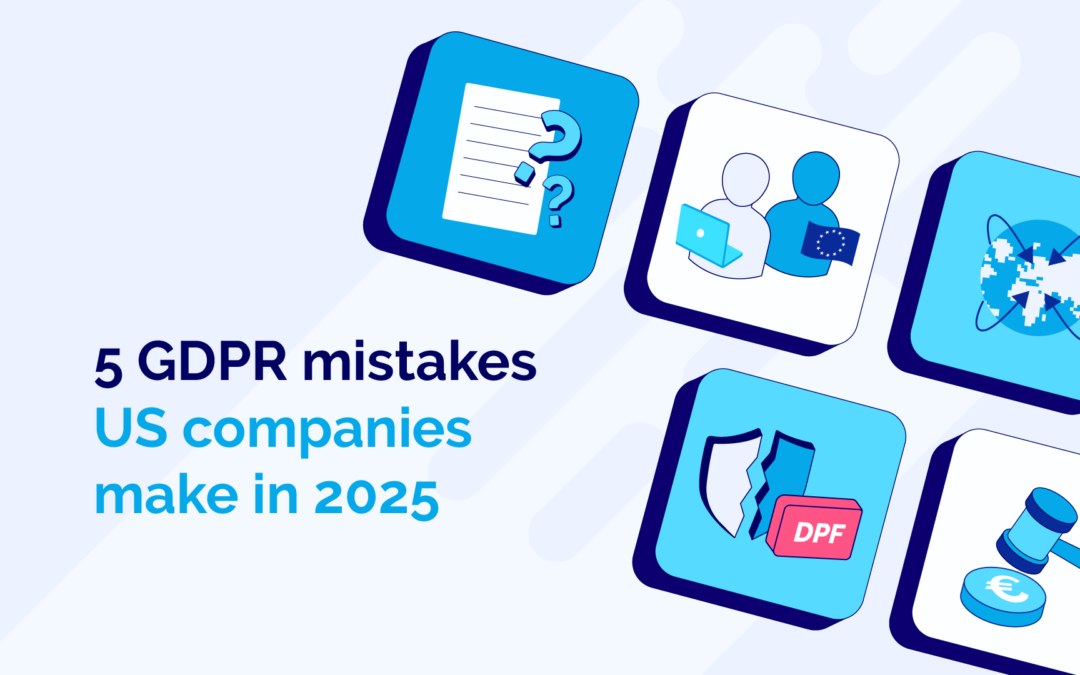Weekly Newsletter: 1st March – 5 March 2021

CJEU to shape requirements for GDPR damage claims
[#CJEU #GDPRDamages #GDPRliability]
“Since the EU General Data Protection Regulation (GDPR) came into force in 2018, the particular requirements for GDPR damage claims under Article 82(1) have been widely discussed. However, the Court of Justice of the European Union (CJEU) has not yet had the chance to give its point of view.
This might change with a decision of the German Federal Constitutional Court dated 14 January 2021 (in German). The Court ruled that it is the responsibility of the CJEU (not a German district court) to decide whether or not the GDPR foresees a material threshold applicable to damages claims under Article 82(1). […]
Beyond the case itself, the Federal Constitutional Court’s decision is grist to the mill for the growing claimant industry, which is ready and waiting to sue controllers under the GDPR – potentially via mass claims. A decision of the CJEU regarding materiality threshold can’t come soon enough.”
To read more: Click here.

Automated racism: How tech can entrench bias
[#Surveillance #Netherlands #Dutch DPA]
“In the run-up to parliamentary elections in the Netherlands this month, center-right and extreme right parties are outdoing one another in calling for a surveillance state that will come down on marginalized and minority groups in all its might. […]
An investigation by the Dutch Data Protection Authority last summer made it unequivocally clear that the methods used by the tax authority to “detect” these alleged cases of fraud were outright discriminatory […]
This problem will not go away if left unaddressed. In fact, the technology on which governments are increasingly relying to automate crucial decisions about our lives has the potential to not only reproduce but amplify structural inequalities in our societies.
The European Union has a crucial role to play here […]
These blacklists pose an undeniable danger to racialized groups in the Netherlands — one that could soon become more acute as a result of new technology […]”
To read more: Click here

Digital secretary Dowden outlines UK post-Brexit data approach
[#Olivierdowden #UKBrexit #Adequacydecision]
“Digital secretary Oliver Dowden has outlined the UK government’s plan approach to data post-Brexit, indicating that it intends to strike new international data partnerships and broaden the remit of the next information commissioner to ensure data is used to achieve social and economic goals. […]
Dowden wrote that the UK government’s approach is “one that no longer sees data as a threat, but as the great opportunity of our time”. […]
In the op-ed, Dowden added that with the UK having left the European Union (EU), it has the freedom to strike new international data partnerships with fast-growing economies around the world, and that it can do so much faster than the EU.
“[…]The EU doesn’t hold the monopoly on data protection,” he wrote, adding that the UK’s commitment to high standards was recognised on 19 February 2021 when the European Commission published two positive draft adequacy decisions.”
To read more: Click here

EU must overhaul flagship data protection laws, says ‘father’ of policy
[#DraftingGDPR #Dataprotectionlaw] Is the GDPR already outdated?
“Europe’s flagship data protection laws are already out of date and must be heavily revised for a post-pandemic world, said a member of the European parliament who spent years drafting the measures.
Axel Voss […] told the Financial Times that it needs “some type of surgery” less than three years after it came into force, and ahead of a vote by the parliament to celebrate it as a “gold standard for the world”. […]
“We have to be aware that GDPR is not made for blockchain, facial or voice recognition, text and data mining …artificial intelligence,” said the German MEP. […]
Sophie in’t Veld, a Dutch MEP who was also involved in drafting GDPR, said the law remains fit for purpose. […] “The idea that we have overlooked something is not plausible. GDPR is also a very general piece of legislation that leaves lots of flexibility for implementation.””
To read more: Click here

Amazon opens first cashier-less store in Europe.
[#Amazon #Customertracking #Bigbrotherwatch] Data protection and cashier-less store in Europe
“Buy groceries without long queues at the cash registers, that’s what Amazon promises. The retailer has now opened its first cashless “Fresh” store in London. […]
Customers simply take items off the shelf and leave the store. Cameras and other sensors such as scales in the shelves register who has taken which goods. The price is debited via the app after leaving the shop. […]
Criticism of the concept of Amazon Fresh comes from the non-profit organization Big Brother Watch, which is committed to civil rights and data protection. “[It] offers a dystopian shopping experience with full surveillance,” Big Brother Watch’s Silkie Carlo said, according to the BBC.
“Amazon’s intensive customer tracking results in a larger personal data footprint than any other retailer. Customers deserve to know how and by whom these records and analytics can be used.””
To read more: Click here.


Understanding GDPR: What You Need to Know in 2025
In 2018, the European Commission introduced the General Data Protection Regulation (GDPR). It shook the world because it applied both to...

5 essential steps for GDPR compliance in the health care industry
What is the GDPR? The General Data Protection Regulation (GDPR) came into force on May 25, 2018, replacing the 1995 Data Protection...

5 GDPR mistakes US companies make in 2025 – and how to avoid them
The General Data Protection Regulation (GDPR) continues to apply to many US companies in 2025, even if they do not have a physical presence...




